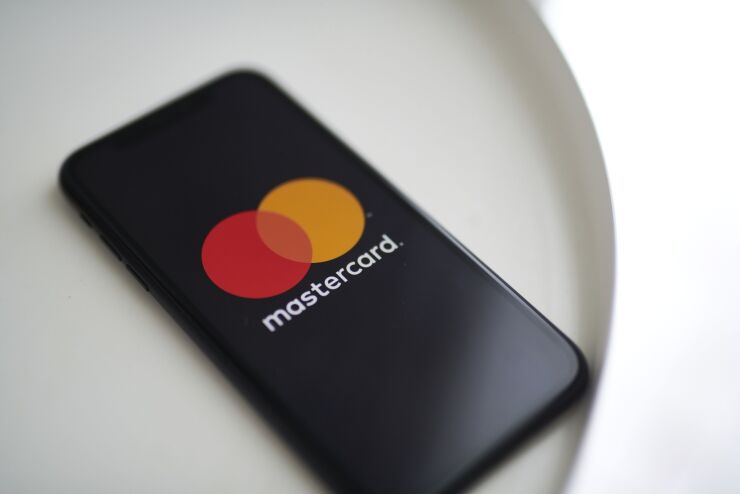The pandemic spurred millions of merchants to add contactless payments within a year, pushing the number of global stores accepting contactless to 90%, according to new data from Mastercard.
In the 12 months following the first quarter of 2020, Mastercard registered 1 billion more contactless transactions over the same period a year earlier, with the U.S. and Brazil showing the largest gains, Mastercard said in a Tuesday press release.
Contactless payments in both the U.S. and Brazil tripled year over year during the period measured, according to the card network's survey of 5,500 merchants.
In a separate survey, 63% of consumers in various global markets said the pandemic caused them to try a new payment method they wouldn’t have tried under normal circumstances, Mastercard said.

More than 100 global markets saw contactless payments as a share of total in-person transactions rise by at least 50%, based on Mastercard’s New Payments Index. Mastercard gathered data for the index from interviews with 15,500 consumers in 18 countries between February 26 and March 10, 2021 with The Harris Poll, according to the release.
The data suggest the pandemic caused an aggressive acceleration of contactless acceptance by merchants and changes in consumer habits that might have taken years to complete otherwise.
“The pandemic made us think differently, partly out of necessity,” said Craig Vosburg, Mastercard’s chief product officer, in the release.
More than 93% of consumers globally said they are considering using emerging payment methods including contactless, biometrics, digital currencies and QR codes; and about 80% said they prefer to shop in stores with both in-store and online payment acceptance.
About half of consumers said they believe biometric payments are secure, and 60% are confident about the potential of biometric verification of payments including technology identifying fingerprints and the way individuals walk, according to Mastercard’s survey.
Cryptocurrency payments are far from mainstream, but 40% of respondents said they plan to use crypto in the next year.
The majority of millennials, 77%, said they’re interested in learning more about crypto and would use it if they understood it better.
Enthusiasm for electronic payments has not killed off interest in cash. About 70% of consumers said they expect to use less cash post-pandemic.
"As we look ahead, we need to continue to enable all choices, both in-store and online, to shape the fabric of commerce and make the digital economy work for everyone," Vosberg said in the release.





